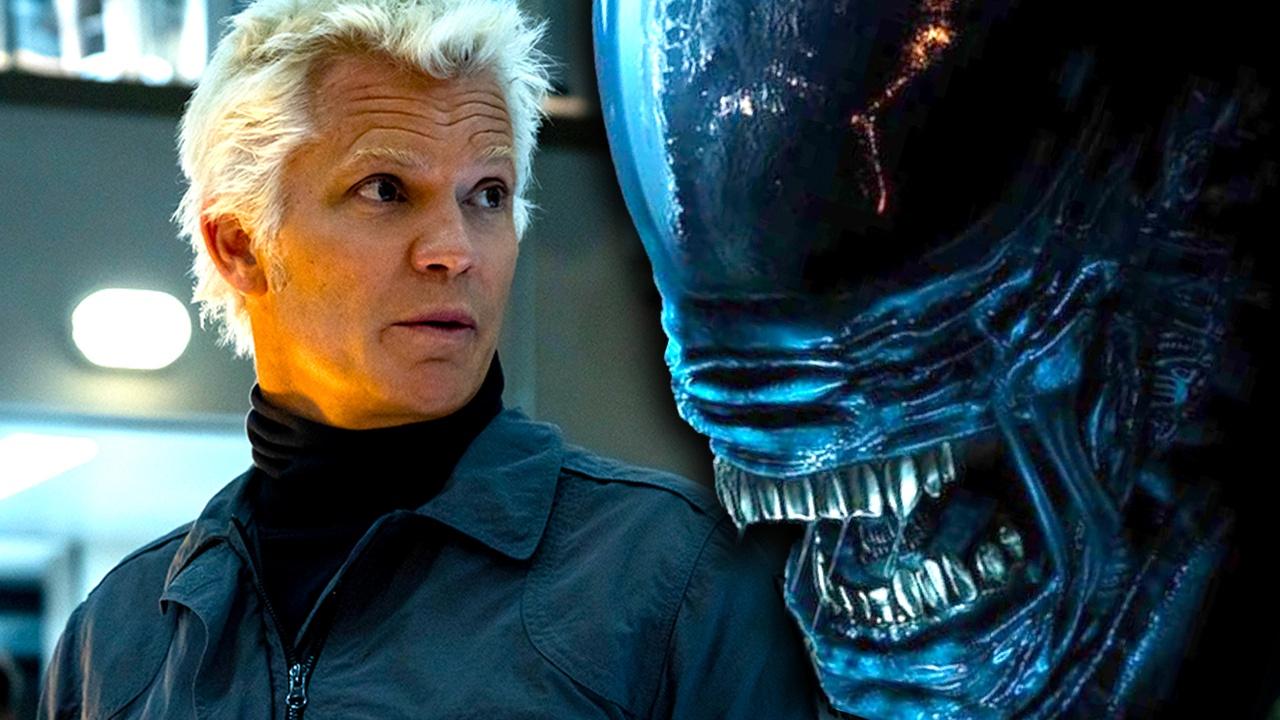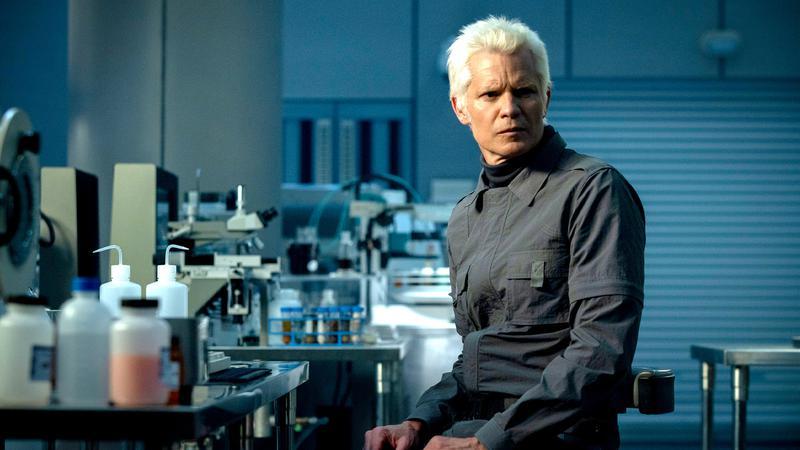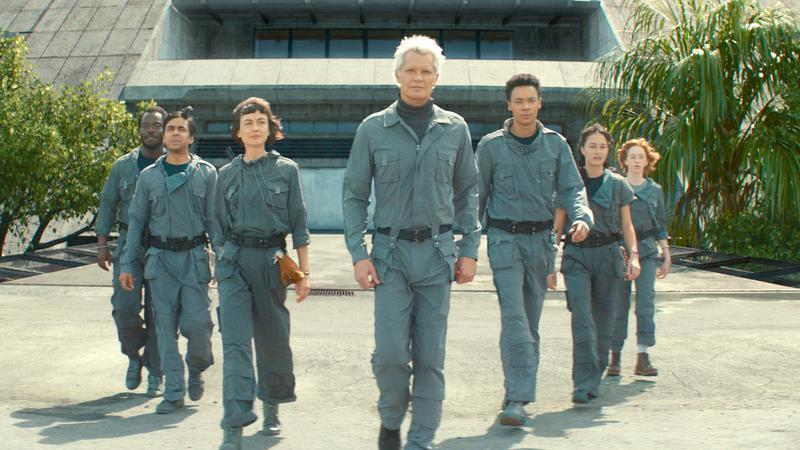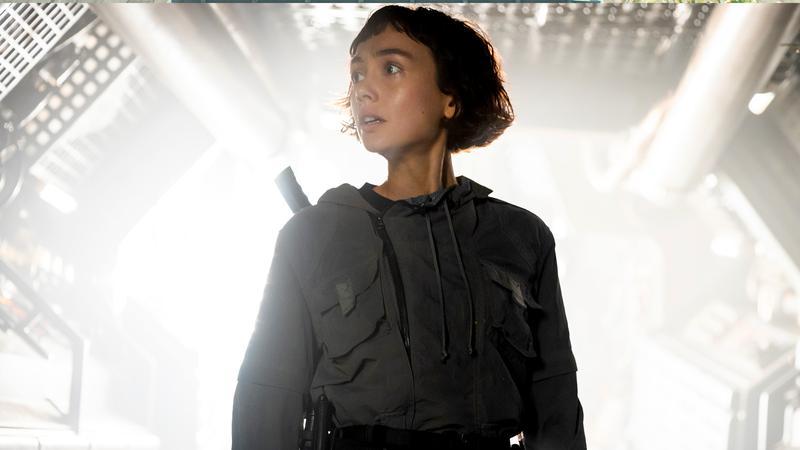
Following last year's hit movie, Alien: Romulus, the franchise is finally set to land on television with Alien: Earth, a new show from the renowned Noah Hawley (Fargo). As the title suggests, the story will finally take the Xenomorphs (and other deadly creatures) to Earth, a first for the franchise.
By bringing the action to Earth, audiences will be introduced to the five corporations that govern Earth in 2120: Prodigy, Weyland-Yutani, Lynch, Dynamic, and Threshold. These companies fight over the remains and specimens left over after a space research vessel crash-lands on Earth.
Outside of its legendary monsters, the Alien franchise is known for its synthetics, most famously Ian Holm's Ash from the original Alien. Each entry always adds its own new synth to the mix, and Alien: Earth will do so with Timothy Olyphant's Kirsch, who works under Boy Kavalier (Samuel Blenkin), the young CEO of Prodigy.
During a virtual press conference for Alien: Earth, Timothy Olyphant and showrunner Noah Hawley discussed how Kirsch will differ from the previous synthetics audiences are familiar with. Olyphant joked that he "thought the white hair was enough" to differentiate his synthetic Kirsch, adding that he is "a huge fan of those gentlemen [that came before him] and their work."
Hawley explained that Kirsch "is [not only] programmed not to harm his boss in any way, but disagreeing with the boss is also discouraged. He elaborated that Kirsch "getting angry at the boss is verboten," and that "if [he doesn't] seem to see eye-to-eye with him, maybe [he'll] just give him a little smile and tell him, fuck you with your eyes."
Alien: Earth's virtual press conference had plenty of other goodies, which can be read below. These included conversations about how Hawley had to shape his narrative to fit television specifically and why telling the story through the perspective of a child was the perfect fit. Alien: Earth premieres on August 12, 2025, on FX and Hulu.
Timothy Olyphant & Noah Hawley on How Kirsch Adds to the Synthetic Legacy

"Maybe He Started to Develop Some Thoughts of His Own..."
- Question: "Timothy, I wanted to turn to you. We've seen many prior iterations of cybernetic-adjacent characters in this franchise, whether it's Ian Holm’s “Ash” or Lance Henriksen’s “Bishop.” I'd love to know what the conversations were like with Noah—and Noah, you can feel free to jump in as well—to find a way to have yours stand apart from others in this franchise."
Timothy Olyphant: I thought the hair was enough. I thought if we bleach the hair... There you go. He's his own thing now. We can stop with the comparisons. I'm a huge fan of those gentlemen and their work. I've watched that performance by Ian Holm, god knows how many times. It's so beautiful and subtle. It was great the first time when he was hiding the ball was great. The second time, when you knew the joke. If I thought of those guys at all, it was simply because I was inspired by them and their work. Mostly, I just showed up to do a Noah Hawley project.
Noah Hawley: Yeah, we talked a little bit about the programming that goes into a Kirsh, and this idea that maybe, not only is he programmed not to harm his boss in any way, but disagreeing with the boss is also discouraged. And getting angry at the boss is verboten. And so, you know, potentially if you don't seem to see eye-to-eye with him, maybe just give him a little smile and tell him, fuck you with your eyes.
Olyphant: It was always fun to play around with the idea that, I don't know, maybe he started to develop some thoughts of his own, and we'll see.
How Noah Hawley Created an Entirely Different Alien Story for Television

Noah Hawley Couldn't Kill Everyone Off In Two Hours—He Had to Find Ways to Invest In His Characters Long-Term
- Question: "Noah and David, Alien: Earth expands the mythology of the franchise with new elements such as hybrids and a co-operative controlled Earth. What were the creative challenges in building something that felt new and surprising, yet still respected the timeline and tone established by Alien?
Noah Hawley: Well, an Alien movie is a two-hour survival story, and a television show is long form in which you have to invest in a lot of characters who don't die and explore these characters and the themes that were introduced in the Alien franchise.
So, the challenges are, for me, let's take the monsters out of it for a minute and think about what the show [is]. Where's the drama that we're investing in week to week? I'm not worried about the monsters. When we put the monsters in, that's the money-back guarantee, right?
So, we had to create this human drama in which you have a lot of human monsters as well and explore a lot of issues about the world that we're living in, just projected into the future.
Executive producer David W. Zucker added that Noah Hawley was able to "take a lot of what was seat in [the first two Alien films]" and insert it into this series:
David W. Zucker: I think just to add to that, that in watching the first two films after having completed the series, it was really striking to me how intimately related the two were—that Noah was able to take a lot of what was seated in those films, a lot of the thematic ideas that were in those films.
But by literally bringing this story to Earth, and the way that many of those films referenced going to one day, it suddenly opened up the landscape, literally, and gave him an opportunity to really delve deeply into things one can't accomplish in a two-hour film.
Why Alien: Earth Was Best Told Through the Perspective of a Child

"The Best Way to Explore That Is to Look at the Adult Human World Through the Eyes of a Child..."
In Alien: Earth, Sydney Chandler's Wendy is a new type of Synthetic: a hybrid. Wendy is actually a terminally ill child whose consciousness the Prodigy corporation transfers into one of its hybrid synthetics in the first episode.
- Question: "So, this is for Noah. Can you talk about why you wanted one of the main POVs to be that of a child, so to speak, with “Wendy” in a story of this scale, and what kind of leeway that gave you as a storyteller to bring emotional depth that maybe you wouldn't have been able to otherwise?
Noah Hawley: Well, I think I spoke earlier about the idea at the heart of Alien is really humanity trapped between nature and technology, and they're both trying to kill us. The question becomes, in an 'Alien' movie, can these two or three human beings survive? In the show, its: can humanity itself survive Which leads to the sort of natural follow-up question is like, do deserve to survive? Can we rise as a species? The best way to explore that is to look at the adult human world through the eyes of a child.
Because children, of course, you know, they're bad liars. They don't know how to pretend they're not scared. And when you're driving around and they go, 'Daddy, why is that man living on the street?' And you go, 'you're just going to have to get used to that,' right? They go, well, 'I don't think we need to get used to that,' right
They don't take for granted some of the things that adults take for granted. And so going in through Wendy's point of view and the other Lost Boys really allowed her to have the sort of pure decency at the heart of her that could then confront the sort of complacency, all the way up to the evils of the adult world.
Chandler herself talked about striking the balance of portraying a child's consciousness in an adult, explaining that "Wendy is very much a blank page:"
Sydney Chandler: Wendy is very much a blank page. You can't research a hybrid. I feel like Noah was able to create a very layered, grounded character. As far as balancing the two, it really depended on who I was acting with on the day and in what scene. You know, every actor would bring a different color to the work, which would kind of give me more information of who I am playing. It was kind of a collaboration of finding Wendy that way.
But I would have this image of two magnets kind of pressing up against each other, and you just can't get them to touch as far as the mind, which is known, and this body, which is unknown territory. It's kind of like what's in the middle—what's that void?—is what she's seeking. And a lot of that has to do with Alex Lawther over here. Great guy.
Fans of Alien should also check out the intriguing Easter egg in Predator: Killer of Killers that might tease another big crossover between the two properties one day.












